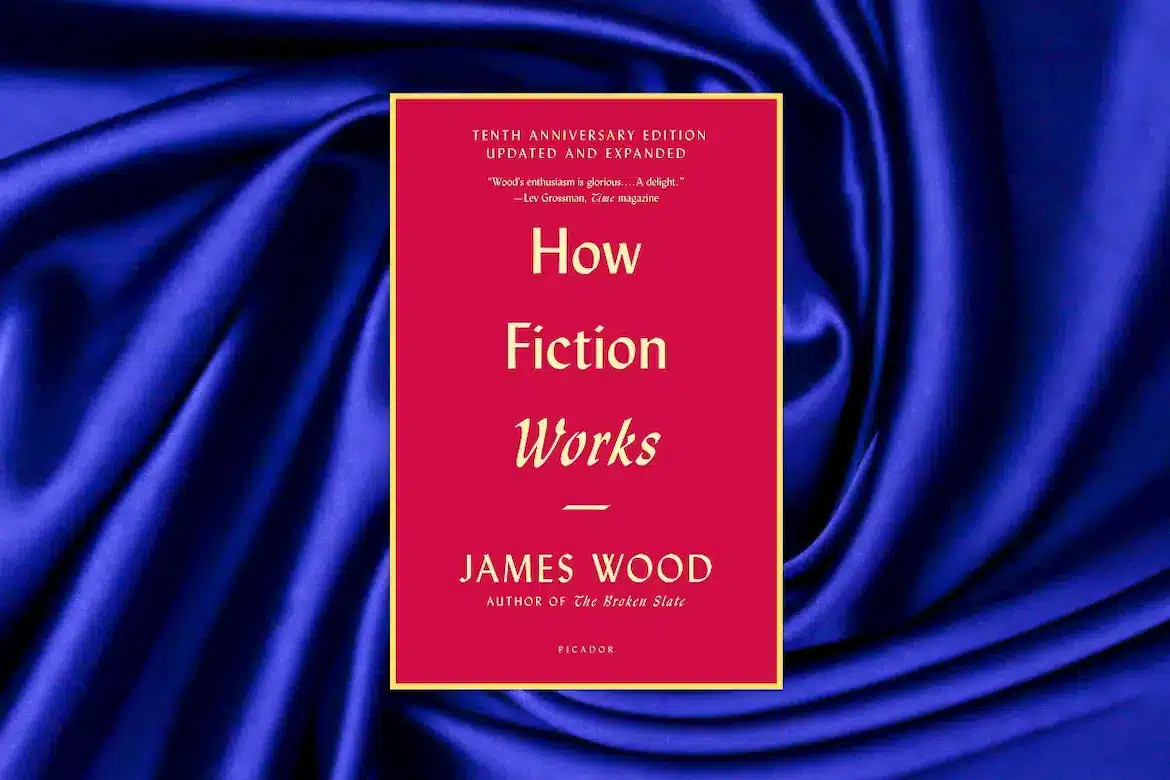~Rebecca Yarros
~ Cicero
~ Mary Schmich
You can find and buy the books we recommend at the LitStack Bookshop on our list of LitStack Recs.

In This LitStack Rec of How Fiction Works
How Fiction Works by James Wood


Cultivating A Reading Life
When it comes to books on the craft of writing, I tend to gravitate to titles that teach through close readings of literature. When I’m caught up in a book, I’m both gauging my response and wondering about others’ responses too. You might prefer a more nuts-and-bolts approach, with straightforward advice and tips, but learning from the close readings of writers one admires seems to me ideal—like having one’s stories and understanding them too. The cultivation of one’s reading life is, after all, as much the goal as writing good sentences, good pages, and good books.
Well-Constructed, But Not Conventional
How Fiction Works is organized around a series of close readings, with chapters structured around different elements of craft. There is the expected chapter on “Dialogue” for example, as well as “Detail,” “Form,” and “Character,” as well as more specific examinations too, such as “Sympathy and Complexity, and one of my favorites, “Flaubert and the Rise of the Flaneur.”

The chapter unpacks point of view, or more specifically, how a character’s thoughts (walking down the street, for example) effect the expository digression that exposes character, setting, and external detail. As Wood observes, the internal view demands the imposition of style, “literature teaches us to notice,” he writes, and relies on a relationship to language that is rich, flexible, and imaginative enough to construct a character’s unfiltered thought. Will that language reflect the writer’s sensibility and her breadth of imagination, or will it simply convey the facts? Here’s Wood on the effect of the object of his examination, Flaubert’s discursive style:
…he is at once a realist and a stylist, a reporter and a poet manqué. The realist wants to record a great deal, to do a Balzacian number on Paris. But the stylist is not content with Balzacian jumble and verve: he wants to discipline this welter of detail, to turn it into immaculate sentences and images…
Wood likes his prose well-constructed, but not conventional. “Convention itself,” he writes, “like metaphor itself, is not dead; but it is always dying.”
The Essence of Fiction
James Wood was born in England in 1965, attended Cambridge, and began his literary career as a book reviewer for The Guardian. He taught with the inimitable Saul Bellow at Boston University, then at Kenyon College, and at Harvard as Professor of the Practice of Literary Criticism. Wood, well known for trenchant investigations of style, is also known for coining the term hysterical realism to describe the sorts of stylistically-driven, lengthy, digressive social novels that marked the late 90s and early aughts, like Zadie Smith’s White Teeth and David Foster Wallace’s Infinite Jest—works influenced in turn by the original hysterical realists, Thomas Pynchon and Don Delillo. For Woods, these novels are strictly pictures of the now, as those novels might be called, and don’t coalesce what he sees as the essence of fiction:
When I talk about free indirect style I am really talking about point of view, and when I talk about point of view I am really talking about the perception of detail, and when I talk about detail I’m really talking about character, and when I talk about character I am really talking about the real, which is at the bottom of my inquiries.
That blend of examination—which often feels so precise as to be surgical (in the best way)—and filtered through Wood’s critic’s sensibility, make How Fictions Works a master class in close reading.
—Lauren Alwan


About James Wood

Other Titles LitStack Recommends

Other LitStack Resources
Be sure and look at our other LitStack Recs for our recommendations on books you should read.
Find Authors you like in Author Shoutouts, a weekly feature on LitStack, and be sure and support independent bookstores – buy a book today at LitStack Bookshop, with tons of author titles.
Also take a look at our LitStack Reviews, including reviews by Lewis Buzbee, Lauren Alwan, Allie Coker, Rylie Fong, and Sharon Browning.
Support Independent Bookstores.
You can find our Author Shoutouts on bookshop.org at LitStack Author Shoutouts.
As a Bookshop, Malaprop’s, BAM, Barnes & Noble, Audiobooks.com, Amazon, and Envato affiliate, LitStack may earn a commission at no cost to you when you purchase products through our affiliate links.






